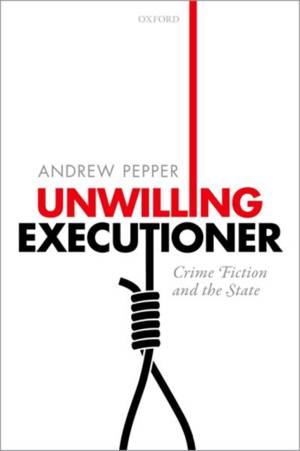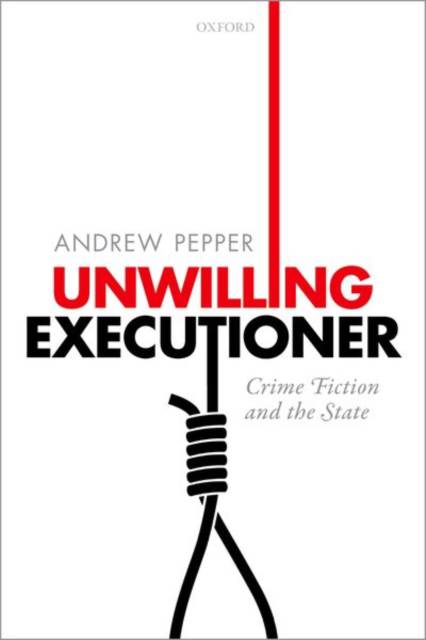
Je cadeautjes zeker op tijd in huis hebben voor de feestdagen? Kom langs in onze winkels en vind het perfecte geschenk!
- Afhalen na 1 uur in een winkel met voorraad
- Gratis thuislevering in België vanaf € 30
- Ruim aanbod met 7 miljoen producten
Je cadeautjes zeker op tijd in huis hebben voor de feestdagen? Kom langs in onze winkels en vind het perfecte geschenk!
- Afhalen na 1 uur in een winkel met voorraad
- Gratis thuislevering in België vanaf € 30
- Ruim aanbod met 7 miljoen producten
Zoeken
€ 62,95
+ 125 punten
Uitvoering
Omschrijving
What gives crime fiction its distinctive shape and form? What makes it such a compelling vehicle of social and political critique? Unwilling Executioner argues that the answer lies in the emerging genre's complex and intimate relationship with the bureaucratic state and modern capitalism, and the contradictions that ensue once the state assumes control of the criminal justice system. This study offers a dramatic new interpretation of the genre's emergence and evolution over a three hundred year period and as a genuinely transnational phenomenon. From its roots in the tales of criminality circulated widely in Paris and London in the early eighteenth century, this book examines the extraordinary richness, diversity, and complexity of the genre's subsequent thematizations of crime and policingmoving from France and Britain and from continental Europe and the United States to other parts of the globe. In doing so it offers new ways of reading established crime novelists like Gaboriau, Doyle, Hammett, and Simenon, beyond their national contexts and an impulse to characterize their work as either straightforwardly 'radical' or 'conservative'. It also argues for the centrality of writers like Defoe, Gay, Godwin, Vidocq, Morrison, and more recently Manchette, Himes, and Sjowall and Wahloo to a project where crime and policing are rooted, and shown to be rooted, in the social and economic conditions of their time. These are all deeply political writers even if their novels exhibit no interest in directly promoting political causes or parties. The result is an agile, layered, and far-reaching account of the crime story's ambivalent relationship to the justice system and its move to complicate our understanding of what crime is and how society is policed and for whose benefit.
Specificaties
Betrokkenen
- Auteur(s):
- Uitgeverij:
Inhoud
- Aantal bladzijden:
- 288
- Taal:
- Engels
Eigenschappen
- Productcode (EAN):
- 9780198831129
- Verschijningsdatum:
- 27/10/2019
- Uitvoering:
- Paperback
- Formaat:
- Trade paperback (VS)
- Afmetingen:
- 155 mm x 231 mm
- Gewicht:
- 453 g

Alleen bij Standaard Boekhandel
+ 125 punten op je klantenkaart van Standaard Boekhandel
Beoordelingen
We publiceren alleen reviews die voldoen aan de voorwaarden voor reviews. Bekijk onze voorwaarden voor reviews.









